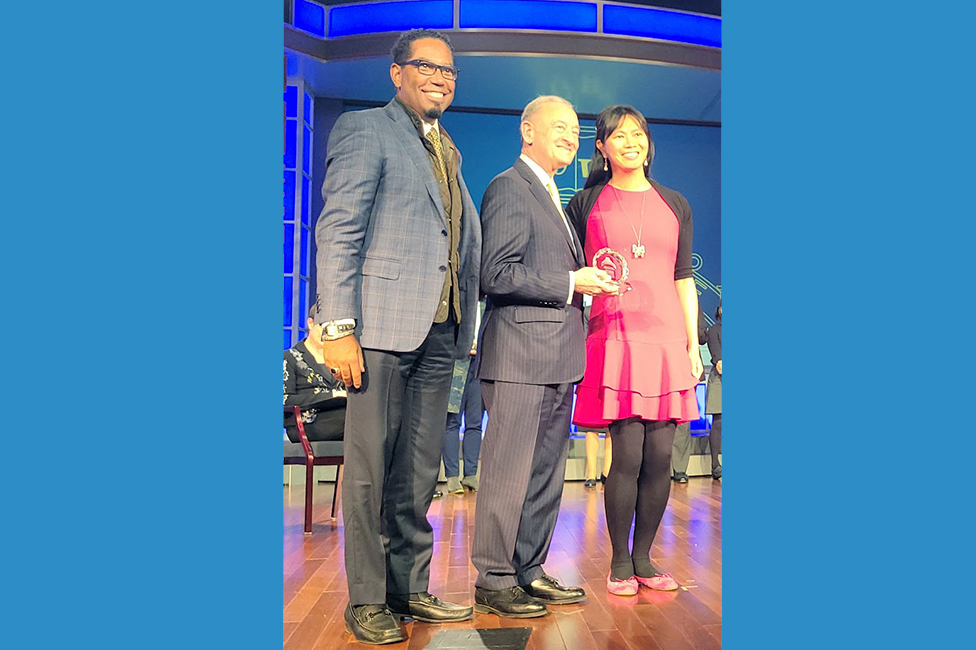Alexa Alice Joubin, Professor of English, International Affairs, Women's, Gender and Sexuality Studies, Theatre, and East Asian Languages and Literatures, has won George Washington University's Oscar and Shoshana Trachtenberg Research Prize this year. Established by University President Emeritus Stephen Joel Trachtenberg, the award honors outstanding faculty research accomplishments, and is a part of the university’s recognitions for teaching, research and service. See this year's full list of winners in GW Today.
Nominators of Dr. Joubin wrote that “her research has a truly global impact. Having published four acclaimed monographs with leading presses including Columbia and Oxford University Press and (co)edited sixteen books, Dr. Joubin is doing groundbreaking work that speaks to our moment in history and our hope for the future. She has invested her knowledge in public outreach efforts, as evidenced by her TEDx talk. Through her work on gendered and racial otherness, she has made a palpable and positive impact on our society and academia. Her contributions to the field of global Shakespeare have been helped shape the contours of this field as they exist today. Her academic career is a stellar example of interdisciplinary scholarship and intersectional criticism.”
Dr. Joubin has also published "Screening Anti-Asian Racism: Gendered and Racialized Discourses in Film and Television” in Duke University Press’s journal Prism; and "Anti-Asian Racist Misogyny in Science Fiction Films” in The American Mosaic: The Asian American Experience (Bloomsbury, 2022). These pieces offer strategies for inclusion and for identifying tacit forms of misogynistic racism in recent science fiction films, drama films, and television series. In particular, the depiction of women of East Asian descent on screen reveals how racial hierarchies are used as justification for mistreatment of women—and how misogynistic prejudices inform racism.


